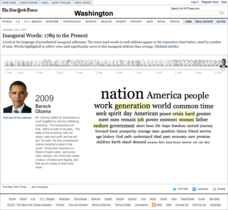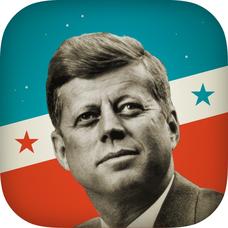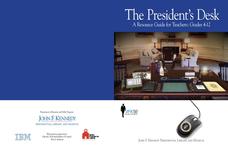Core Knowledge Foundation
Early Presidents and Social Reformers
A unit by Core Knowledge begins with information about early United States presidents. Pupils then explore social reformers such as Sojourner Truth and Frederick Douglas, abolitionism, women's rights, and more. Participants listen and...
Core Knowledge Foundation
Presidents and American Symbols Tell It Again!™ Read-Aloud Anthology
Scholars look into the country's current president, past presidents, the White House, Washington D.C., and the Declaration of Independence. They identify the flag, the Statue of Liberty, as well as Mount Rushmore and the significance of...
Google
The White House
Taking a guided tour through the White House would require extensive travel costs and an armed security escort—but a virtual tour only requires an Internet connection! A few clicks bring users through the historical corridors and rooms...
Constitutional Rights Foundation
The Lincoln-Douglas Debates — Springboard to the White House
The Lincoln-Douglas Debates saw two primary political candidates debating seven different times about one of the most important social movements in United States history. Middle and high schoolers read an article that describes the...
Mr. Nussbaum
Abraham Lincoln Reading Comprehension—The Middle Years (Part 3)
How did Abraham Lincoln begin to change the minds of American citizens? Join him in his quest with a reading passage about Lincoln's experiences as a congressman and public denouncement of slavery. The resource contains reading...
Mr. Nussbaum
Abraham Lincoln Reading Comprehension—The Middle Years (Part 1)
Learn more about Honest Abe with an informative passage that details his life chronologically. As learners read sections of the text, they answer multiple choice questions that draw on their ability to recall details from the passage.
PBS
Master of the Airwaves: How FDR Used Radio to Ease the Public’s Fears
The political and economic climate during the 1930's was uncertain and tumultuous. But Americans' minds and hearts were eased with the reassuring words of their president, Franklin D. Roosevelt, and addresses over the radio. High...
PBS
President Theodore Roosevelt: Foreign Policy Statesman or Bully?
Can a negative perception of a president's foreign policy harm his or her historical legacy? A project that winds the clock back to the date of Theodore Roosevelt's death puts students at the editorial desk of a fictional newspaper....
The New York Times
Inaugural Words: 1789 to the Present
One of the reasons presidential inaugural speeches are so inspiring is the way word choice reflects the historical context of the time. An interactive timeline invites learners to click on their president of choice and view the most...
John F. Kennedy Library Foundation
JFK Challenge
And so, my fellow Americans: ask not what your country can do for you—ask what you can do for your country. And so begins your invigorating, innovative learning experience in the JFK Challenge app! Learners...
Staples Foundation For Learning
The President’s Desk
What stories can a desk paperweight and picture frame possibly tell us about the president of the United States? Pupils are transported to the desk of President John F. Kennedy through an engaging interactive site. The guide offers...
Humanities Texas
A President's Vision: George Washington
Who knew that one poster about George Washington could have so many learning possibilities attached to it? Here you'll find an attractive learning display on the first president of the United States, as well as worksheets and...
Smithsonian Institution
George Washington: A National Treasure
Take a closer look at the life and presidency of George Washington with this great set of lesson plans and worksheets. The resource includes a timeline of the president's life and multiple opportunities for primary source and...
National Endowment for the Humanities
The Argument of the Declaration of Independence
When in the course of a course on historic American events, it becomes necessary for learners to examine, with decent respect, the Declaration of Independence, it becomes evident that there are six separate and equal parts of that...
Curated OER
Everyone Wants to Be President
How can you help your class understand the breadth of duties and the challenges of being the leader of the United States?
National Park Service
Should America Have Gone to War in 1812?
Using an incredibly engaging activity and detailed lesson plan, your learners will serve as advisors to President Madison on whether to participate in what would become the War of 1812! Utilize a variety of effective instructional...
Friends of Fort McHenry
Baltimore – Caught in the Middle
Choosing sides is no easy matter, and this was certainly true for the citizens of Baltimore in the beginning stages of the Civil War. Using video, group analysis of several primary sources, and discussion, this detailed and thorough...
Curated OER
The Crash and The New Deal
How did the stock market crash in 1929 when everything seemed to be going so well in the 1920s? Analyze the economic choices of the times that caused the crash and the Great Depressions occur. Hard hitting economics and the policies of...
Curated OER
Battles of the American Revolution
Wow, now here's a presentation that tells a story! Your class can follow along the battle lines of the American Revolution to learn key players, dates, and events that marked each twist and turn in the fight for American independence....
Curated OER
The Vietnam War 1954-1975
Discuss the full travesty of the Vietnam War. Whether it's for history class, Memorial Day, or Veterans Day, this slide show is sure to make an impact on learners in the upper grades. Vivid images, concise language, and the complete...
Curated OER
Empire to Independence
Here is a wonderful presentation, perfect for setting the stage for the Revolutionary War. Containing great information and images, it acts as a timeline of events starting with the French Indian War and ending with the dawn of the...
Curated OER
Vietnam 1945 - 1975 :The 10,000 Day War
Each phase of the Vietnam War is fully developed and defined in terms of political cause and effect and social action. Phase one covers the onset of the war in 1945 through the French defeat at Dienbienphu. Phase two discusses American...
Curated OER
A Presidential Portrait: Andrew Jackson
Eighth graders examine the role of intended meaning in Ralph Earl's portrait of Andrew Jackson. They, in groups, research periods in Jackson's life and use gathered information to create their own portraits of Jackson.
Curated OER
The American Revolution: 1775 - 1783
Track the ins and outs and wartime strategies used by both the British and the Americans during the Revolutionary War. Multiple comparisons are made between both factions, maps, statistical data, images, and light text is used throughout...

























